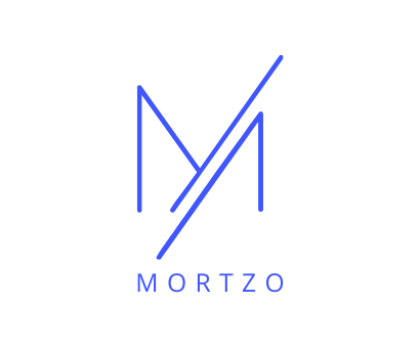Medical Insurance Explained: Understanding Coverage, Costs, and Benefits.

Medical insurance is a critical component of modern life, offering protection against the high costs of healthcare and ensuring access to necessary medical services. Whether you are navigating regular doctor visits, emergency care, or long-term treatment, having adequate medical insurance can significantly impact both your health and financial stability. In this blog, we will explore the importance of medical insurance, how it works, and what to consider when selecting the right plan for your needs.

What is Medical Insurance?
Medical insurance, also known as health insurance, is a contract between you and an insurance company that covers part or all of your medical expenses in exchange for a monthly premium. It helps individuals manage the costs of healthcare, from preventive services like routine check-ups to major procedures like surgeries. Without medical insurance, the financial burden of medical expenses can be overwhelming, particularly in the event of a sudden illness or accident.

Why is Medical Insurance Important?
Financial Protection
Healthcare in many parts of the world, especially in countries like the United States, is expensive. Medical insurance helps to mitigate these costs, covering everything from doctor visits and prescription medications to hospital stays and specialized treatments. Without insurance, individuals may find themselves facing high out-of-pocket expenses, which can lead to financial strain or even bankruptcy.
Access to Quality Care
Medical insurance ensures access to a wide range of healthcare services, including preventive care, screenings, and vaccinations. These services are crucial for early detection of health issues and maintaining overall wellness. Many insurance plans also provide access to a network of doctors and specialists, making it easier to receive timely and appropriate care.
Preventive Care
One of the key benefits of medical insurance is that it covers preventive services like annual check-ups, vaccinations, and screenings. These preventive measures are essential in identifying potential health problems early on, which can reduce the need for more costly treatments down the line. Regular check-ups also promote long-term health and well-being by allowing healthcare providers to monitor and manage any ongoing conditions.

How Does Medical Insurance Work?
Medical insurance involves several components, each of which affects your coverage and costs:
- Premiums: The monthly amount you pay to maintain your medical insurance policy. Whether you use healthcare services or not, premiums must be paid regularly to keep your coverage active.
- Deductibles: This is the amount you pay out-of-pocket before your insurance starts covering your medical expenses. For example, if you have a $1,000 deductible, you’ll need to spend $1,000 on eligible medical costs before your insurance begins to pay.
- Copayments and Coinsurance: After meeting your deductible, you will often have to pay a portion of your medical costs through copayments (a fixed amount for specific services, like a $20 fee for a doctor’s visit) or coinsurance (a percentage of the cost, like 20% of the cost of a surgery).
- Out-of-Pocket Maximums: This is the most you’ll have to pay for covered services in a year. Once you reach this limit, your insurance covers 100% of covered healthcare costs for the remainder of the year.

Types of Medical Insurance Plans
There are several types of medical insurance plans, each offering different levels of coverage and flexibility. Understanding the differences between these plans can help you choose the one that best fits your needs.
- Health Maintenance Organization (HMO)
HMO plans require you to select a primary care physician (PCP) and get referrals from your PCP to see specialists. These plans often have lower premiums and out-of-pocket costs, but they limit your choice of healthcare providers to those within the plan’s network. - Preferred Provider Organization (PPO)
PPO plans offer more flexibility by allowing you to see specialists without referrals and visit healthcare providers both in and out of the plan’s network. However, this flexibility often comes with higher premiums and out-of-pocket costs. - Exclusive Provider Organization (EPO)
EPO plans are similar to PPOs but typically do not cover any out-of-network care, except in emergencies. They offer a balance between cost savings and provider flexibility. - High-Deductible Health Plan (HDHP)
HDHPs come with higher deductibles but lower premiums. They are often paired with Health Savings Accounts (HSAs), which allow you to save money tax-free for medical expenses. These plans are suitable for those who want lower premiums and are willing to pay more upfront for their care.

Choosing the Right Medical Insurance Plan
Selecting the right medical insurance plan depends on your individual needs, financial situation, and health status. Here are a few factors to consider:
- Healthcare Needs: If you have ongoing medical conditions or need regular check-ups, consider a plan with lower out-of-pocket costs and more comprehensive coverage. For those who rarely visit the doctor, a high-deductible plan with lower premiums might be more cost-effective.
- Network of Providers: Ensure that your preferred doctors and specialists are in-network to avoid additional costs. Some plans offer larger networks, while others may have more limited options.
- Budget: Carefully assess how much you can afford to pay in monthly premiums and out-of-pocket expenses. A lower premium might seem attractive, but if it comes with a high deductible or costly copayments, it could end up being more expensive in the long run.
- Prescription Drug Coverage: If you require regular medications, check whether the plan covers your prescriptions and how much you’ll have to pay for them.
Conclusion
Medical insurance is essential for protecting both your health and your finances. By understanding the different types of plans and how they work, you can make informed decisions that will benefit your long-term well-being. Whether you choose an HMO for lower costs or a PPO for greater flexibility, having the right coverage ensures that you can access the care you need without the risk of financial hardship.
Investing in a medical insurance plan that meets your needs can give you peace of mind, knowing that you are prepared for whatever health challenges may arise.

